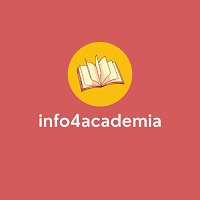The Correlation Between Archetype Personality and Business Success in Small and Medium Enterprises (SMEs) in Java Island
Abstract
Keywords
Full Text:
PDFReferences
Anastasi, A., & Urbina, S. (1997). Psychological Testing (7th ed.). Prentice Hall/Pearson Education
Barney, J. (1991). Firm resources and sustained competitive advantage. Journal of Management, 17(1), 99-120. https://doi.org/10.1177/014920639101700108
Becker, D. V., & Neuberg, S. L. (2019). Archetypes reconsidered as emergent outcomes of cognitive complexity and evolved motivational systems. Psychological Inquiry, 30(2), 59-75. https://doi.org/10.1080/1047840X.2019.1614795
Brandstätter, H. (2011). Personality aspects of entrepreneurship: A look at five meta-analyses. Personality and Individual Differences, 51(3), 222-230. https://doi.org/10.1016/j.paid.2010.07.007
Burke, A. E., FitzRoy, F. R., & Nolan, M. A. (2008). What makes a die-hard entrepreneur? Beyond the ‘employee or entrepreneur’dichotomy. Small Business Economics, 31, 93-115. https://doi.org/10.1007/s11187-007-9086-6
Caliendo, M., Fossen, F., & Kritikos, A. S. (2014). Personality characteristics and the decisions to become and stay self-employed. Small Business Economics, 42, 787-814. https://doi.org/10.1007/s11187-013-9514-8
Campbell, J. (2008). The Hero with a Thousand Faces (3rd ed.). New World Library.
Du Toit, D. M., & Coetzee, M. (2012). Archetypal values of science and engineering staff in relation to their career orientations. SA Journal of Industrial Psychology, 38(1), 1-14. https://doi.org/10.4102/sajip.v38i1.955
Gelman, A., & Park, D. K. (2009). Splitting a predictor at the upper quarter or third and the lower quarter or third. The American Statistician, 63(1), 1-8. https://doi.org/10.1198/tast.2009.0001
Green, M. C., Fitzgerald, K., & Moore, M. M. (2019). Archetypes and Narrative Processes. Psychological Inquiry, 30(2), 99–102. https://doi.org/10.1080/1047840X.2019.1614808
Herrera, J., & de las Heras-Rosas, C. (2020). Economic, non-economic and critical factors for the sustainability of family firms. Journal of Open Innovation: Technology, Market, and Complexity, 6(4), 119. https://doi.org/10.3390/joitmc6040119
Horney, N., Pasmore, B., & O’Shea, T. (2010). Leadership agility: A business imperative for a VUCA world. People & Strategy, 33(4), 34.
Kessler, E. (2020). Wise Leadership: A Toolbox for Sustainable Success. Routledge.
Klein, P. G., Barney, J. B., & Foss, N. J. (2012). Strategic Entrepreneurship. In SSRN Electronic Journal. https://doi.org/10.2139/ssrn.2137050
Morrison, A. (2006). A contextualisation of entrepreneurship. International Journal of Entrepreneurial Behaviour & Research, 12(4), 192–209. https://doi.org/10.1108/13552550610679159
Obschonka, M., Silbereisen, R. K., & Schmitt?Rodermund, E. (2012). Explaining entrepreneurial behavior: Dispositional personality traits, growth of personal entrepreneurial resources, and business idea generation. The Career Development Quarterly, 60(2), 178-190. https://doi.org/10.1002/j.2161-0045.2012.00015.x
Pearson, C. S. (2015). Awakening the Heroes Within: Twelve Archetypes to Help Us Find Ourselves and Transform Our World (1st. ed.). HarperOne.
Pearson, C. S., & Marr, H. K. (2003). PMAI Manual: A Guide to Interpreting the Pearson-Marr Archetype Indicator Instrument. Centre for Applications of Psychological Type.
Prayitno, E., Tarigan, N. L. L., Mauidzoh, U., & Sukmawaty, W. E. P. (2024). The revival of SMEs in Indonesia from the impact of the Covid-19 pandemic. Journal of the Community Development in Asia, 7(2), 99-114. https://doi.org/10.32535/jcda.v7i2.2950
Putra, I. G. C., Kepramareni, P., & Suryandari, N. N. A. (2019). Empowerment program, entrepreneurial competence and business growth SMEs in Denpasar. Asia Pacific Journal of Management and Education, 2(2), 87-96. https://doi.org/10.32535/apjme.v2i2.557
Rauch, A., Wiklund, J., Lumpkin, G. T., & Frese, M. (2009). Entrepreneurial orientation and business performance: An assessment of past research and suggestions for the future. Entrepreneurship: Theory and Practice, 33(3), 761–787. https://doi.org/10.1111/j.1540-6520.2009.00308.x
Ravenscraft, D. J. (1983). Structure-profit relationships at the line of business and industry level. The Review of Economics and Statistics, 65(1), 22–31. https://doi.org/10.2307/1924405
Riyanti, B. P. D., Sandroto, C. W., & Warmiyati, M. (2016). Effect of soft skill competencies and hard skill competencies toward intention to become entrepreneur of vocational graduates. International Research Journal of Business Studies, 9(2), 119–132. https://doi.org/10.21632/irjbs.9.2.119-132
Sanford, C. (2021). The Responsible Entrepreneur: Four Game-Changing Archetypes for Founders, Leaders, and Impact Investors (2nd ed.). Interoctave, Inc.
Santoso, A., Singgih, D. R., & Hidayat, D. (2019). How to sustain in a VUCA world: A conceptual study on start-ups in Indonesia. Journal of Business and Entrepreneurship, 7(2), 12-20.
Spencer, L. M., & Spencer, S. M. (2008). Competence at Work: Models for Superior Performance. Wiley India Pvt Ltd.
Suwandi, Y. W. (2024). Improving the competence of SMEs customers through mentoring: Holding BRI and PT Permadani Nasional Mandiri. Journal of the Community Development in Asia, 7(1), 42-53. https://doi.org/10.32535/jcda.v7i1.2849
Wikantiyoso, B., Riyanti, B. P. D., & Suryani, A. O. (2021). A construction of entrepreneurial personality tests: testing archetype personality inventory in entrepreneurship. International Journal of Applied Business and International Management, 6(1), 1-13. https://doi.org/10.32535/ijabim.v6i1.1085
Yuliastuti, I. A. N., Utama, M. S., Marhaeni, A. A. I. N., & Yuliarmi, N. N. (2024). Family welfare of Micro, Small, and Medium Entrepreneurs: A literature study review of economics. Journal of the Community Development in Asia, 7(1), 105-120. https://doi.org/10.32535/jcda.v7i1.2576
Zhao, H., Seibert, S. E., & Lumpkin, G. T. (2010). The relationship of personality to entrepreneurial intentions and performance: A meta-analytic review. Journal of Management, 36(2), 381–404. https://doi.org/10.1177/0149206309335187
DOI: https://doi.org/10.32535/jcda.v7i3.3516
Refbacks
- There are currently no refbacks.
Copyright (c) 2024 Bimo Wikantiyoso

This work is licensed under a Creative Commons Attribution-NonCommercial-ShareAlike 4.0 International License.
Journal of The Community Development in Asia (JCDA)
ISSN 2685-8819 (Print) | ISSN 2654-7279 (Online)
DOI Prefix: 10.32535 by CrossRef
Published by AIBPM Publisher
JL. Kahuripan No. 9, Hotel Sahid Montana, Malang, Indonesia
Email: journal.jcda@gmail.com
Phone: +62 341 366222
Website: https://aibpmpublisher.com/
Governed by
Association of International Business and Professional Management
Email: admin@aibpm.org
Website: https://www.aibpm.org/
Licensing Information

Journal of The Community Development in Asia (JCDA) is licensed under a Creative Commons Attribution-NonCommercial-ShareAlike 4.0 International License .

















